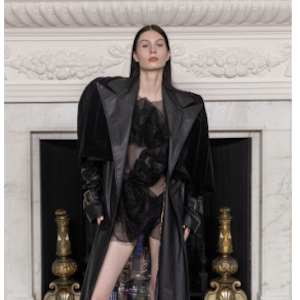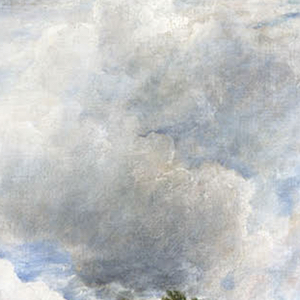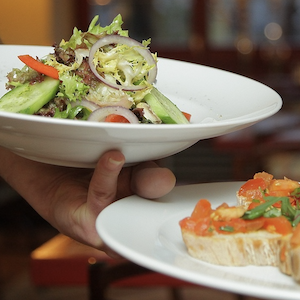Land of the Sun
By Natasha Nitturkar
A land of culture, a land of tradition, a land of yesterday, today and tomorrow. Nippon (as Japan calls itself) literally mean “the sun’s origin” and maybe one reason that it is referred to as the land of the rising sun. But what comes to mind when you think of Japan? Cutting-edge gadgets? Video games? Traditional crafts? Robot sushi bars? Or a window into the past, the present and the future?

Japan, an archipelago of about 6800 volcanic islands, is a distinct country whose culture has influenced the world for centuries. From tea ceremonies to flower arranging techniques, to fascination with Marie Kondo’s decluttering techniques or art by Yayoi Kusama, Japan offers the rest of the world so much more than cartoons and technology.
The 21stcentury might reflect Japan’s shift towards innovation and experimentation, but the country carefully balances modernisms with its unique traditions. As such, a slight diversion into the Japanese way of life can lead you inside a culture that opens up infinite possibilities.
Napoleon Hill (American self-help author) once said, “If you can’t do great things, do small things in a great way”.
In life, people tend to appreciate only major achievements but often forget that success is a culmination of smaller efforts taken every single day. And the Japanese know this well. Their concept of Ikigai, which means “a reason for being” (The word refers to having a direction or purpose in life, in which an individual takes spontaneous and willing actions giving them satisfaction and a sense of meaning to life.) helps them to attain a sense of accomplishment in everything they do.
Art is a fundamental part of the Japanese way of life and often reflects the country’s captivating history and diversity. Regions of Japan are renowned for their specific crafts, many of which are inspired by the local materials and natural settings. The ‘Craftland Japan’ published by Thames & Hudson is a photographic voyage to remote studios of Japan’s most alluring and ingenious contemporary craftspeople. Created with the aim of sharing unseen treasures, designer-authors Uwe Röttgen and Katharina Zettl travelled around the country into the workshops and hearts of the real craftsmen of Japan.

Nature has always been central to the Japanese way of life and the book intends to celebrate this union of craft, design, materiality, and how it continues to flourish in a contemporary interpretation.

Featuring twenty-five expert artisans, Craftland Japan reveals photographs and texts drawn from close collaboration with the artists from their studios. The book also talks about the various ancient techniques and natural materials that are used to produce a wide variety of everyday objects ranging from porcelain bowls to indigo-dyed fabrics to paper. Get your copy from here.
While art is an inherent part of the culture, it has many forms. From American filmmaker George Lucas’s famous Star Wars to screen hits like the Blade Runner and The Matrix, Japanese cinema has influenced the creators of the western world for decades. Although newer productions are now breaking boundaries with their experimental styles and overcoming taboos, action and drama still play a crucial role in Japanese Cinema.

Throw Down directed by Johnnie To (previous hits like Mad Detective, Election) is a visually arresting action drama based on one man’s determination to rediscover himself. A tribute to the great Japanese director Akira Kurosawa, the movie is centered on the legendary Judo fighter Szeto Bo (Louis Koo; Flash Point, The Legend of Zu) who unexpectedly gave up the sport and now lives the life of an alcoholic gambler who runs a pub.
Johnnie throughout the movie emulates some of Kurosawa’s extraordinary filming techniques like the heroic champion, cycles of violence and a close examination of human nature.
Filled with brutal, no-holds-barred Judo fight scenes and some emotional drama, Throw Down carefully weaves in a story of determination and dedication. The movie focuses on how small changes in perception can help you pursue your passion and how a slight push on the correct motivators can help one attain the impossible.
Presented on Blu-ray from a 4K restoration in its UK debut, the movie will be part of ‘The Masters of Cinema Series’. Available on Eureka for purchase, the package includes a limited edition o-card slipcases and a collector’s booklet. Watch now.
Additionally, newer productions like Mizuko (Water Child), a documentary based on grieving after an abortion is challenging the traditional culture in Japan. The animated documentary showcases the journey of a Japanese-American woman who re-evaluates what it means to end her own pregnancy and its consequences. Inspired by the Buddhist ritual to grieve abortions, directors Kira Dane and Katelyn Rebelo showcase the untold and ignored nuances of the Japanese way of life.

The documentary is categorised as an experimental film and explores the concepts of femininity, politics, and personal freedom. Water Child (Mizuko) will be screened online as part of Palm Springs International. Watch the trailer here.
Life as a whole is like a complex structure made up of multiple thoughts and in order to grow, we need to cherish every single one of them – big and small. Similarly, understanding the subtleties of a unique culture like Japan can take several years. The Japanese are well known for their precision, quality and Lexus with its continued pursuit of extraordinary experiences that embody it perfectly.
With its new podcast called ‘Go and See’ (the Japanese translation of “genchi genbutsu”) the car company has teamed up with New York Times Bestselling author Malcolm Gladwell to discover the brand’s unconventional thinking and processes.

In this six-part podcast series, Gladwell, a self-proclaimed car nut, travels around Japan to explore Lexus’s top-secret racetrack. He shadows engineers and executives, gaining insight into the brand’s research of the ‘human behaviour’ and processes that have set it apart.
Each episode dives deep into unique elements of the luxury automaker’s identity, from how a Japanese tea ceremony influenced the engineering of a car window; to the musical composition of a coupe’s engine and the emotions it elicits.
Listeners can tune into the series via multiple apps like Apple podcast and Spotify or head to the Lexus link here.
Culture and heritage reflect all aspects of Japan, even in their fashion. Inspired by the Japanese sandal known as Zori, whose soles are made of rice straw, Havaianas invented the world’s famous sandals using rubber soles known as ‘The Traditional’ in order to adapt to Brazil’s hot climate.

Now, almost 60 years later, Havaianas released a new shape called Tradi Zori. Developed with a square base, rubber material, fabric strap and a brand-new design, the new sandal intends to target the urban fashionistas.
To celebrate the launch, the brand has collaborated with the Japanese fashion icon, mastermind JAPAN. This new collaboration will match the urban style soul of mastermind JAPAN and its skull pattern, with the shapes of Havaianas sandals, bringing two different models: Top, with the traditional Havaianas’s sole, and the novelty that promises to break paradigms.
“With this collaboration, we combine past and present launching not just new flip flops, but a whole new lifestyle…” says Fernanda Romano – Global Marketing Director for Havaianas.
The new launches will be available at Browns from 17th June in the UK.
The Japanese have bought to the world the belief that our happiness and success rely on us thinking constructively, acting with intent and fostering strong relationships with others. These traits lie at the core of Japanese culture and are something that we can all embrace.
If you enjoyed the land of the rising sun read more such articles for example, check out- The Art of Slighting





